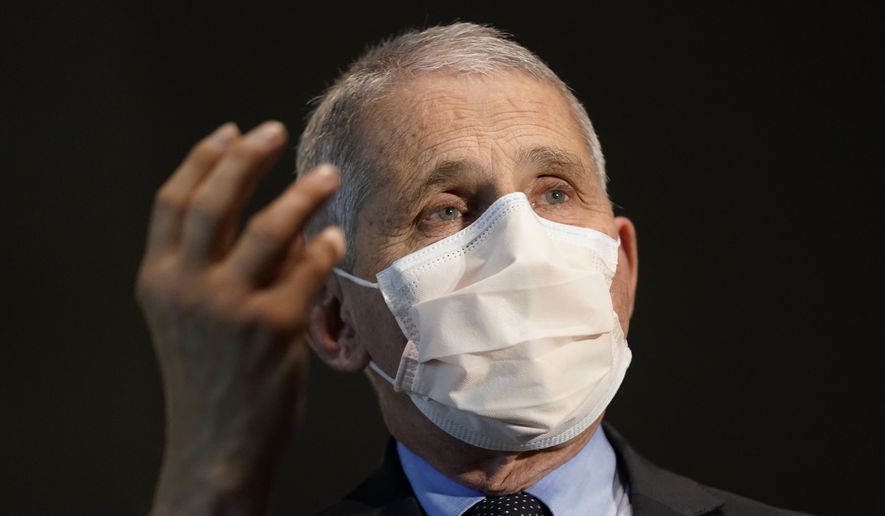Dr. Anthony Fauci said Thursday the U.S. will stop withdrawing staff from the World Health Organization and meet its financial obligations to the U.N. body as a full international partner in the response to COVID-19.
The remarks from Dr. Fauci, the director of the National Institute of Allergy and Infectious Diseases, formalized President Biden’s about-face in dealing with the world’s leading health organization.
Former President Trump moved to withdraw from WHO, saying it was too deferential to China after the coronavirus appeared in its central city of Wuhan.
“The United States stands ready to work in partnership and solidarity to support the international COVID-19 response, mitigate its impact on the world, strengthen our institutions, advance epidemic preparedness for the future, and improve the health and wellbeing of all people throughout the world,” Dr. Fauci told the executive board.
Dr. Fauci thanked WHO for its work “under trying circumstances” but twice said the U.S. and partners should “strengthen and reform” the body so it improves its responses to global emergencies.
Congressional Republicans chided Mr. Biden on Wednesday, saying it was foolish to stay in WHO without getting those reforms first.
WHO Tedros Ghebreyesus thanked “my brother, Tony,” for his remarks and welcomed the U.S. back to the fold, saying they have “a lot of work to do and lessons to learn.”
Dr. Fauci spoke on the one day anniversary of the discovery of the first coronavirus case in the U.S. — a 35-year-old who traveled from the Wuhan area to Washington State.
Since then, the nation has recorded 25 million infections — there were undoubtedly many more — and over 400,000 deaths.
The Biden White House released a COVID-19 strategy ahead of formal actions to contain the crisis Thursday that eyes an increase in testing, beefed-up production of masks and vaccine supplies and promote “surge” testing for schools looking to reopen.
Under the plan, states would receive 100% reimbursement, instead of 75%, for money they spend in using the National Guard for cleaning and vaccination efforts or to reopen schools.
The plan leans heavily on the Defense Production Act, which allows presidents to invoke wartime powers to compel manufacturing, to get more tests, N95 masks and other supplies.
It also emphasizes “public trust,” vowing to give the Centers for Disease Control and Prevention a more visible role in the fight so scientists speak directly to the American people.
Mr. Biden will outline his plans in more detail Thursday but a key question remains — whether this administration can get doses of the Pfizer-BioNTech and Moderna vaccines to states in a quicker, more predictable cadence.
Both the Trump and Biden teams recommended expanded access to the vaccines, as the rollout lagged, but demand is beginning to outstrip supply, leading to gripes from governors and setting up a key test for the new president.
Mr. Biden directed the Federal Emergency Management Agency to begin setting up 100 vaccination centers and hopes to have widespread distribution in pharmacies by February.
Whether they’re useful may depend on what happens behind the scenes in pulling more doses off the line under existing U.S. contracts.
The new plan “includes prioritizing supplies that could cause bottlenecks, including glass vials, stoppers, syringes, needles, and the ‘fill and finish’ capacity to package vaccine into vials,” according to materials from the White House.
But it’s unclear if Mr. Biden will be able to deliver doses faster than his predecessor, at least in the near term. The Trump administration already had begun to deliver all doses in hand instead of holding back reserves.
A third vaccine, from Johnson & Johnson, could speed the rollout since it only requires one dose. The company could file for emergency approval by the end of this month or early February.
• Tom Howell Jr. can be reached at thowell@washingtontimes.com.




Please read our comment policy before commenting.